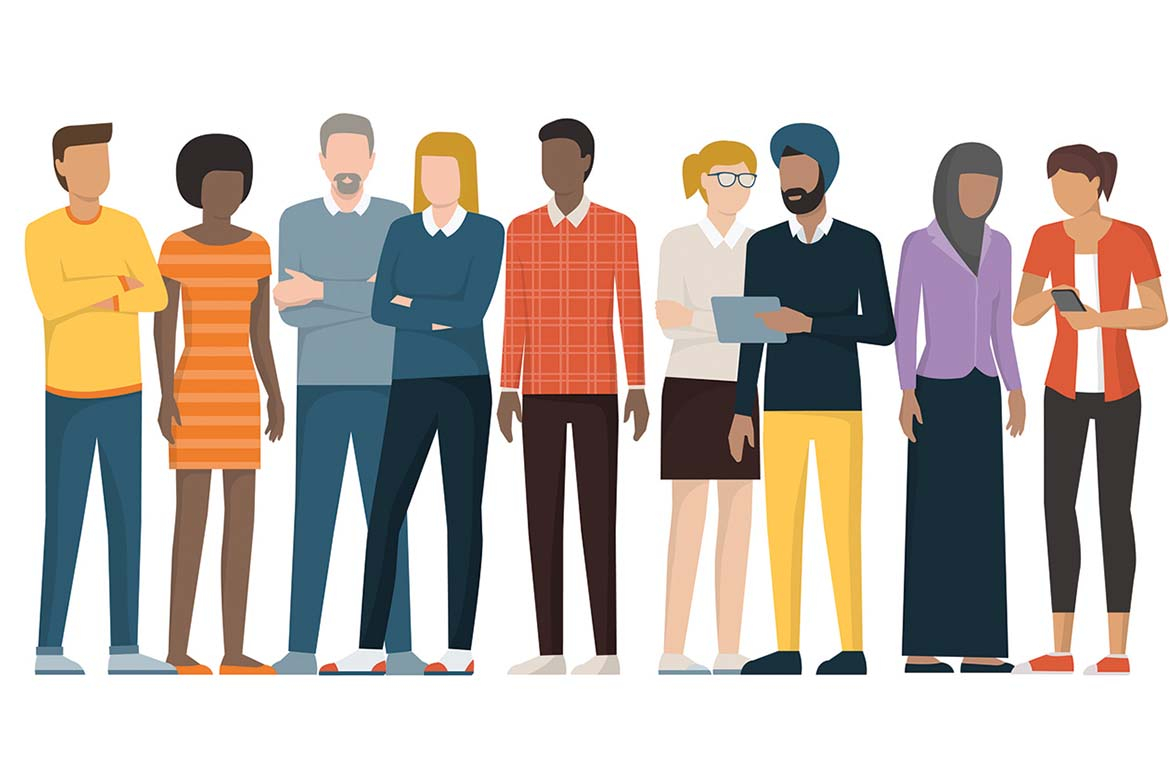Diversity and Inclusion in the Security Sector
An interview with Asif Sadiq MBE, sharing his insights on diversity and inclusion in the security sector.
Diversity and Inclusion in the security sector is such a large topic with so many factors, where do you start?
We can start by simply accepting and treating each other equally. The foundation to behaving this way is that everyone is able to share as much or as little of their true selves at work as they would like to.
For most people, this is what happens naturally, we’ll share information on some characteristics of ourselves, such as age, gender, ethnicity, but might not want to discuss other aspects – our religion, sexual orientation or education. It’s also important that we do not use what we do know to label each other. No one has just one characteristic and the use of labels can mean we jump to conclusions about people.
So you could ask: why is diversity and inclusion in the security sector important? Well, research has shown that if we allow people to be their authentic self and create a sense of belonging for them, then their output and performance is improved and they are better able to deal with both day-to-day challenges and create innovative solutions. Within the security sector, this is particularly important, as finding creative ways to better protect individuals and companies is of the utmost importance.
How do you create an agile environment that makes everyone feel included?
This involves making inclusion, where we are consistent and fair to each other, part of everyone’s role. It’s not about creating stringent procedures for people to follow, but more about encouraging and normalising inclusive behaviour. Managers and those in leadership positions can play a key role here, by demonstrating and encouraging inclusive behaviour at all levels within an organisation.
This is part of embedding Diversity and Inclusion into the organisation’s culture.
It does not mean creating a whole new culture – what’s more impactful is assessing where small changes can be made, that allow all cultures to thrive. Like adjustments to a security officer’s uniform that make it comfortable for everyone. Or offering essential training at different times, days of the week and locations to allow everyone to attend with ease. This helps support an agile environment which doesn’t require its diverse workforce to assimilate into one homogeneous space or way of thinking.
When you’ve created an inclusive environment and have hired a diverse workforce, how do you get the best out of such diverse teams?
Diverse teams can initially provide challenges, but there’s so much evidence to show that they create a greater output, are more innovative and spot more opportunities – so I think it’s important to reframe our thinking from challenges to opportunities.
One of the great things about diversity is that it disrupts ‘normal’ processes. Diverse teams make your organisation look at things through multiple lenses. We can’t waste that opportunity – we have to provide spaces and ensure our processes are in place to support that diversity, from flexible working to respecting differences in cultures.
Diversity and inclusion within the security industry helps support efforts to tackle the varied security challenges organisations face. A good example of this is the opportunity diversity presents to challenge norms that have established over time within security, which might not be the best way to tackle emerging challenges and threats.
You said that we should stop putting labels on others. Can you expand on that?
I think that adding a label to someone is lazy, it’s not insightful and it makes us complacent.
Take me as an example: someone might label me as BAME and make assumptions about my needs, background and experiences. Based on those assumptions they will project their unconscious biases onto me and presume what my needs are, which might not be true.
BAME is an issue in itself: it’s a label that homogenises all British Black, Asian and Minority Ethnic people – surely that’s too broad of a brush to make assumptions from?
I’m an Asian-looking man, and as a result, people often make the assumption that I will be quiet – which couldn’t be further from the truth! They also wouldn’t presume that I was born in Kenya, and when they find out, they make new assumptions, which again are often wrong!
I don’t say this to complain. I appreciate and understand that people act with genuine intentions – but by stereotyping, they often produce negative outcomes. We should encourage learning, explore differences and ask questions of each other, as that helps us understand and create a more inclusive workplace for all. I am not aware of anyone being offended if a question is asked with the right intent!
What key message would you like people to remember about Diversity and Inclusion in the security sector?
We need to treat people as individuals; only then can we create a true sense of diversity, inclusion and belonging.
As the security industry evolves, Diversity and Inclusion is providing a platform to improve our efforts around the challenges we face and create a workforce that benefits from the diversity of ideas, solutions and thoughts, and one where everyone can be themselves and succeed. The key is treating people as individuals.

